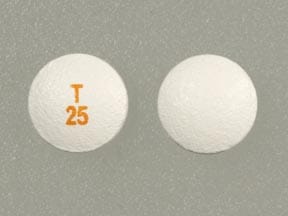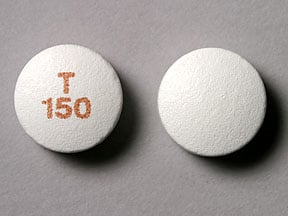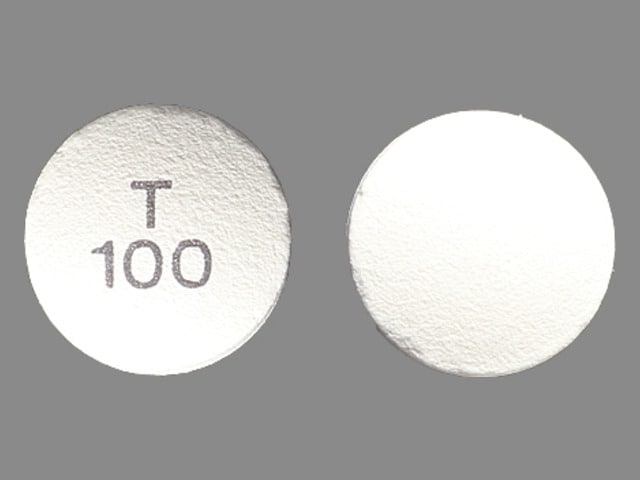What is Tarceva used for?
- Tarceva is used to treat lung cancer.
- It is used to treat pancreatic cancer.
Before taking Tarceva, tell your doctor:
- If you are allergic to Tarceva; any part of this medicine; or any other drugs, foods, or substances. Tell your doctor about the allergy and what signs you had.
- If you are being treated with a platinum-based chemo drug like cisplatin or carboplatin.
- If you take any other drugs (prescription or OTC, natural products, vitamins). There are many drugs that interact with Tarceva, like certain drugs that are used for infections, seizures, or stomach or bowel problems.
- If you are breast-feeding. Do not breast-feed while you take Tarceva and for 2 weeks after your last dose.
This is not a list of all drugs or health problems that interact with this medicine.
Tell your doctor and pharmacist about all of your drugs (prescription or OTC, natural products, vitamins) and health problems. You must check to make sure that it is safe for you to take Tarceva with all of your drugs and health problems. Do not start, stop, or change the dose of any drug without checking with your doctor.
What are some things I need to know or do while I take Tarceva?
- Tell all of your health care providers that you take Tarceva. This includes your doctors, nurses, pharmacists, and dentists.
- If you have upset stomach, throwing up, diarrhea, or are not hungry, talk with your doctor. There may be ways to lower these side effects.
- Have blood work checked as you have been told by the doctor. Talk with the doctor.
- Very bad and sometimes deadly bleeding can happen when warfarin is taken with Tarceva. If you are taking warfarin or another drug like warfarin, you may need to have your blood work checked more closely. Talk with your doctor.
- If you smoke, talk with your doctor.
- If you start or stop smoking, talk with your doctor. How much drug you take may need to be changed.
- If you drink grapefruit juice or eat grapefruit often, talk with your doctor.
- It is common to get a rash with Tarceva but other skin reactions may also happen. Sometimes, these rashes and skin reactions can be very bad and may need treatment in the hospital. Call your doctor right away if you have acne, skin redness, or a skin rash that bothers you or does not go away. Call your doctor right away if you have redness or irritation of the palms of hands or soles of feet.
- You may get sunburned more easily. Avoid sun, sunlamps, and tanning beds. Use sunscreen and wear clothing and eyewear that protects you from the sun.
- Use an alcohol-free lotion or cream to help with pimple-like skin effects or dry skin.
- Very bad and sometimes deadly lung, liver, or kidney problems have happened with Tarceva. Talk with your doctor.
- Very bad and sometimes deadly holes in the GI (gastrointestinal) tract have happened with Tarceva. Talk with the doctor.
- This medicine may cause harm to the unborn baby if you take it while you are pregnant.
- Women must use birth control while taking Tarceva and for some time after the last dose. Ask your doctor how long to use birth control. If you get pregnant, call your doctor right away.
How is Tarceva best taken?
Use Tarceva as ordered by your doctor. Read all information given to you. Follow all instructions closely.
- Take on an empty stomach. Take 1 hour before or 2 hours after meals.
- Keep taking Tarceva as you have been told by your doctor or other health care provider, even if you feel well.
- If you need to take an antacid or a drug like famotidine or ranitidine, talk with your doctor about how to take it while taking Tarceva.
What do I do if I miss a dose?
- Take a missed dose as soon as you think about it.
- If it is close to the time for your next dose, skip the missed dose and go back to your normal time.
- Do not take 2 doses at the same time or extra doses.
What are the side effects of Tarceva that I need to call my doctor about immediately?
WARNING/CAUTION: Even though it may be rare, some people may have very bad and sometimes deadly side effects when taking a drug. Tell your doctor or get medical help right away if you have any of the following signs or symptoms that may be related to a very bad side effect:
- Signs of an allergic reaction, like rash; hives; itching; red, swollen, blistered, or peeling skin with or without fever; wheezing; tightness in the chest or throat; trouble breathing, swallowing, or talking; unusual hoarseness; or swelling of the mouth, face, lips, tongue, or throat.
- Signs of infection like fever, chills, very bad sore throat, ear or sinus pain, cough, more sputum or change in color of sputum, pain with passing urine, mouth sores, or wound that will not heal.
- Signs of liver problems like dark urine, feeling tired, not hungry, upset stomach or stomach pain, light-colored stools, throwing up, or yellow skin or eyes.
- Signs of kidney problems like unable to pass urine, change in how much urine is passed, blood in the urine, or a big weight gain.
- Signs of lung or breathing problems like shortness of breath or other trouble breathing, cough, or fever.
- Weakness on 1 side of the body, trouble speaking or thinking, change in balance, drooping on one side of the face, or blurred eyesight.
- Chest pain or pressure.
- Any unexplained bruising or bleeding.
- Feeling very tired or weak.
- Change in eyesight, eye pain, or very bad eye irritation.
- If bright lights bother your eyes.
- Low mood (depression).
- Very bad belly pain.
- Throwing up blood or throw up that looks like coffee grounds.
- Black, tarry, or bloody stools.
- A very bad skin reaction (Stevens-Johnson syndrome/toxic epidermal necrolysis) may happen. It can cause very bad health problems that may not go away, and sometimes death. Get medical help right away if you have signs like red, swollen, blistered, or peeling skin (with or without fever); red or irritated eyes; or sores in your mouth, throat, nose, or eyes.
What are some other side effects of Tarceva?
All drugs may cause side effects. However, many people have no side effects or only have minor side effects. Call your doctor or get medical help if any of these side effects or any other side effects bother you or do not go away:
- Feeling tired or weak.
- Itching.
- Upset stomach.
- Diarrhea.
- Not hungry.
- Mouth irritation or mouth sores.
- Headache.
- Back, muscle, or joint pain.
- Change in hair or nails.
- Dry skin.
- Weight loss.
These are not all of the side effects that may occur. If you have questions about side effects, call your doctor. Call your doctor for medical advice about side effects.
You may report side effects to the FDA at 1-800-332-1088. You may also report side effects at https://www.fda.gov/medwatch.
If overdose is suspected:
If you think there has been an overdose, call your poison control center or get medical care right away. Be ready to tell or show what was taken, how much, and when it happened.
Tarceva Images
How do I store and/or throw out Tarceva?
- Store at room temperature.
- Store in a dry place. Do not store in a bathroom.
- Keep all drugs in a safe place. Keep all drugs out of the reach of children and pets.
- Throw away unused or expired drugs. Do not flush down a toilet or pour down a drain unless you are told to do so. Check with your pharmacist if you have questions about the best way to throw out drugs. There may be drug take-back programs in your area.
Consumer information use and disclaimer
- If your symptoms or health problems do not get better or if they become worse, call your doctor.
- Do not share your drugs with others and do not take anyone else's drugs.
- Some drugs may have another patient information leaflet. Check with your pharmacist. If you have any questions about Tarceva, please talk with your doctor, nurse, pharmacist, or other health care provider.
- If you think there has been an overdose, call your poison control center or get medical care right away. Be ready to tell or show what was taken, how much, and when it happened.
This information should not be used to decide whether or not to take Tarceva or any other medicine. Only the healthcare provider has the knowledge and training to decide which medicines are right for a specific patient. This information does not endorse any medicine as safe, effective, or approved for treating any patient or health condition. This is only a brief summary of general information about this medicine. It does NOT include all information about the possible uses, directions, warnings, precautions, interactions, adverse effects, or risks that may apply to Tarceva. This information is not specific medical advice and does not replace information you receive from the healthcare provider. You must talk with the healthcare provider for complete information about the risks and benefits of using this medicine.






